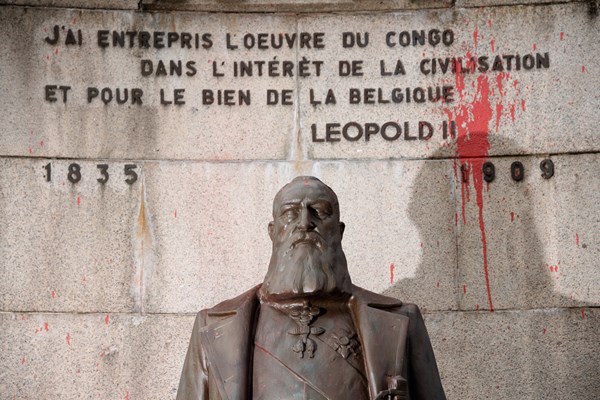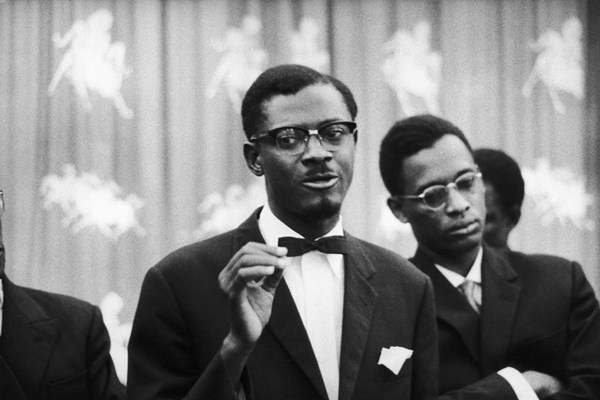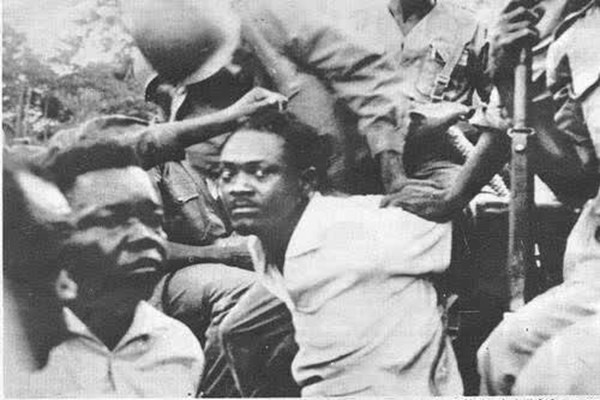the anniversary of the death of the Congolese anti-colonial hero; Who was Lumumba and why was he killed?
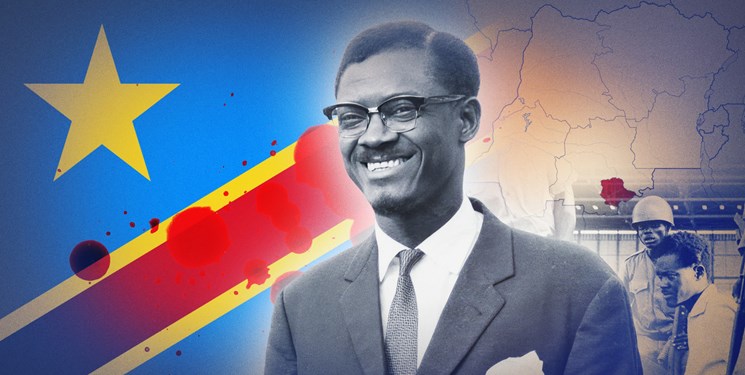
| It took only 200 days from the time Patrice Lumumba gave his first fiery speech in support of Congolese independence until he was executed with the support of the Belgian government. |
Fars News Agency International Group – Between July 30, 1960, when Patrice Lumumba gave his first epic speech in support of Congolese independence from the Belgian colonial empire, until January 17, 1961, when he spoke the last words of his life, exactly It was 200 days away.
In that short space of time, Lumumba became one of the most famous people on the planet: a hero to the people of Africa but a villain to the Western world. He became a shining star among the people who wanted to get out of the Western domination, and for that reason, he should be extinguished quickly.
Belgian-colonized Congo
In 1900, nearly 90% of the European continent was under European colonization. Of all that land, 11 percent belonged to Leopold II, the then King of Belgium. The “Congo Free State” was administered under his personal supervision, which, of course, brought many benefits to him. It is said that in the name of helping the local people, Leopold extracted Congolese minerals and sold them in the world market.
At that time, the invention of the pneumatic tire had led to an increase in the world’s demand for natural rubber. . The Congo Free State was one of the main sources of this material at that time. In order to respond to this volume of demand, Leopold II had determined the share that the natives had to pay as taxes. It was waiting for them: the king’s private army would come in, set fire to their houses and shoot people at random. In order to prove that they did not waste bullets, the king’s army had to cut off the right hand of the dead and take them to the king in a basket.
Statue of Leopold II at a crossroads in Belgium in 2020 >
Soon the news of the king’s crimes spread to other places. Evidence of his inhumane treatment of Congolese natives led to public outrage and the end of his rule. In 1908, the king sold this African country to the Belgian government, and thus this land became the Belgian Congo.
After that, the overall situation improved a little. Arbitrary killings of natives decreased and the rubber tax law was repealed. The First World War and the economic growth of the 1920s improved the situation of this colonial country. In 1925, a man was born whose name will forever be recorded in the history of this country, the continent of Africa and the world.
The early years of Lumumba’s life
Lumumba’s childhood and youth were not much different from his peers, except that he was always eager to learn. Lumumba considered education and learning important. At the age of 20, he worked as a bookkeeper in a government office.
Lumumba attended night classes to improve his French and after that he started reading various books and materials to He spoke French. Lumumba had a strong desire to belong to the black middle class. In 1947, he attended a nine-month training program at the Post Office School. He was selected as an outstanding student of the class, which made him able to work in the post office of Stanleyville, which was the capital of that colonial country at that time.
This made him Lumumba will be able to take the title of “Ivole” (in French as evolved or developed person) at that time. During the colonial era, this nickname was given to Africans who were so-called “evolved” and through education managed to become a person with European values and behavioral patterns. They had banned Congolese people and instead allowed them professional internships. Natives could become carpenters but not architects. They could become assistant doctors but not doctors. In fact, the Belgian government had kept the Congolese illiterate for this reason, and their motto was “Don’t have an elite to avoid problems.”
The amazing thing was that the so-called “Evolved” also accepted this situation. Even in the mid-1950s, there was no talk of independence among them. Lumumba was also one of the supporters of the gradual colonial development and he was hard to praise the Belgians. He believed that any defects in the colonial system were only due to the wrong implementation of some correct policies. This position made the colonial government officials trust him.
In 1954 he gave a speech next to the Minister of Colonial Affairs of Belgium and in 1955 next to the King of Belgium. The following year, he went on a government-sponsored tour of Belgium with a group of “converts”. Everything was going well for him until he was arrested in July 1956 on charges of embezzlement. He was sentenced to two years in prison but was pardoned by the king after 14 months. After that, he left for “Leopoldville” and entered the field of politics. In October 1957, he launched the “Congo National Movement” with a group of transformed Congolese citizens. This movement was a reformist movement and demanded “independence within a reasonable time frame”.
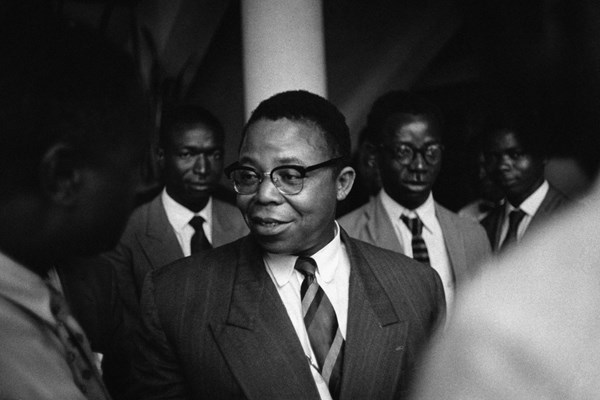
Joseph Kassavobo, President of the Congo
An unexpected speech
It was at the “African People’s Conference” in December 1958 in Accra that was a turning point in Lumumba’s thinking. appeared. In that conference, he met politicians, diplomats, trade unionists, intellectuals, political leaders and revolutionary people from other African countries. It was from here that he was exposed to the first “Pan-African” thoughts. From then on, Lumumba realized that there was no way to fight colonialism and independence from Belgium in Gangu politics. From then on, Lumumba’s slogan became: “Death to colonialism!” Long live independence.”
In 1959, Lumumba traveled throughout the Congo, holding rallies in towns and villages and giving speeches in support of independence, encouraging people to join the movement. He called for anti-colonialism. Soon his endless efforts paid off and people began to believe that the Congo could really become independent.
In late 1959 Lumumba was arrested again on charges of inciting civil unrest. While he was in prison, Belgian authorities agreed to the demands of Congolese activists and set up a round table to discuss the terms of independence. Lumumba’s imprisonment increased his popularity. When a conference began in Brussels in January 1960, Congolese delegates issued an ultimatum: Lumumba had to be released in order to participate in the event. The Belgians capitulated.
The date for the declaration of independence was set for July 30, 1960, before general elections were held in May, in which the Congolese National Movement won and Lumumba became Congolese Prime Minister. And “Joseph Kasavubu” became the president of this country.
Lumumba’s prime minister in the Congo in 1960
Lumumba was not supposed to to give a speech on that day. Only King Baudouin and President Kasavubu were supposed to make speeches. But the king’s words were full of colonialist ideas. After the king, the president spoke and repeated the king’s statements in support of the union between Congo and Belgium. Then, to everyone’s surprise, Lumumba took the stand:
“Men and women of the Congo, I salute you… our wounds are still much fresher and more painful than They can be forgotten. We are used to back breaking jobs that pay not enough to eat, not to have a decent housing and not to raise our children. We have suffered reproaches, insults and tragic events every morning, noon and evening because we are Kakasiah. We know well that our lands have been usurped according to legal texts that only recognize the rights of the strongest. We know well that the law has never been the same for blacks and whites: it has shown favor to one and has been inhumane to the other. But we say to you out loud: From today, all this is over.” Lumumba went on to say that the independence of the Congo is a decisive step towards the freedom of the entire African continent. From that moment on, Lumumba became a prominent figure. Belgium, as the former master of the Congo, and the United States, as the main warmonger of the Cold War, were ready to cooperate with the “moderate” Kasavubu, who did not disagree with the West on the main issue, the economy. In contrast, the “extreme Lumumba” had to be eliminated. In terms of strategically important minerals, Congo was rich in copper, tin, cobalt, zinc, cadmium, germanium, manganese, silver and gold. In addition, this country was the owner of the materials that America needed more than anything else, radium and uranium. These treasures had to be protected from “dangerous people like Lumumba”.
On September 5, President Kasavubu announced the removal of Lumumba as Prime Minister. In response, Lumumba removed the president from office. The parliament refused to recognize these decisions and demanded a peaceful resolution of the issue. The president and prime minister were deadlocked.
Congolese army chief of staff Colonel Joseph-Désiré Mobutu eventually staged a coup d’état, ousting Kasavubu and Lumumba and establishing a new interim government. did It was later revealed that Mobutu (backed by the CIA) supported Kasavubu and opposed Lumumba. The former prime minister was placed under house arrest under UN custody.
On November 27, Lumumba escaped. As soon as this news was published, a massive helicopter search operation was launched to find him. Larry Devlin, the head of the CIA’s center in the Congo, was helping the Joint Chiefs of Staff to find Lumumba.
Finally, on December 1, Lumumba was caught by an army patrol while crossing the Sankuru River in Lodi. arrested. He was shot on January 17, 1961 with the tacit support of the Belgian government. His last words to the people who tried to kill him were: “I have nothing to say to you.” The body of the Congolese anti-colonial hero was buried in a shallow grave. Later, his body was removed from the grave again and buried in another place.
Lumumba before his execution
His body is a He was taken out of the grave once again and by the order of a Belgian police commissioner named “Gerard Sutte” he was cut into pieces with a saw and dissolved in acid so that no trace of his body would be found and no evidence of the Belgian government’s actions would remain.
The coup that led to the overthrow of Lumumba’s government and the brutal execution of the prime minister along with two of his comrades, Maurice Mpolo, Minister of Sports and Youth and Joseph Okito, President of the Senate, on January 17, 1961, was a devastating blow. brought to the African revolution. Congo became a strategic base for the CIA and its struggle to end the South African independence process, which was finally realized in the 1990s. The atomic weapons used in Hiroshima and Nagasaki and dozens of other nuclear tests during the Cold War years used uranium from Congolese mines.
end of message/
| publisher | Fars News |


